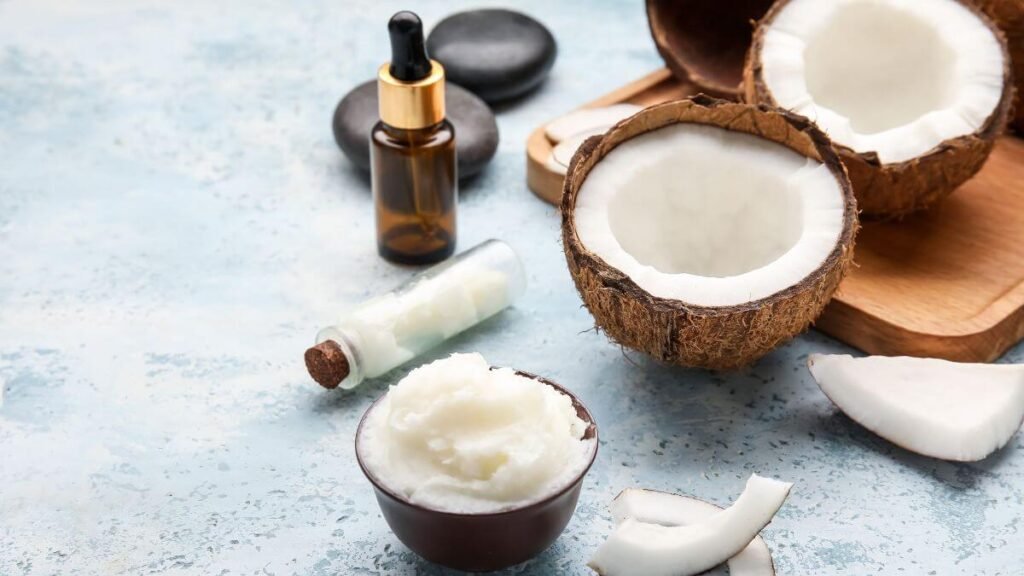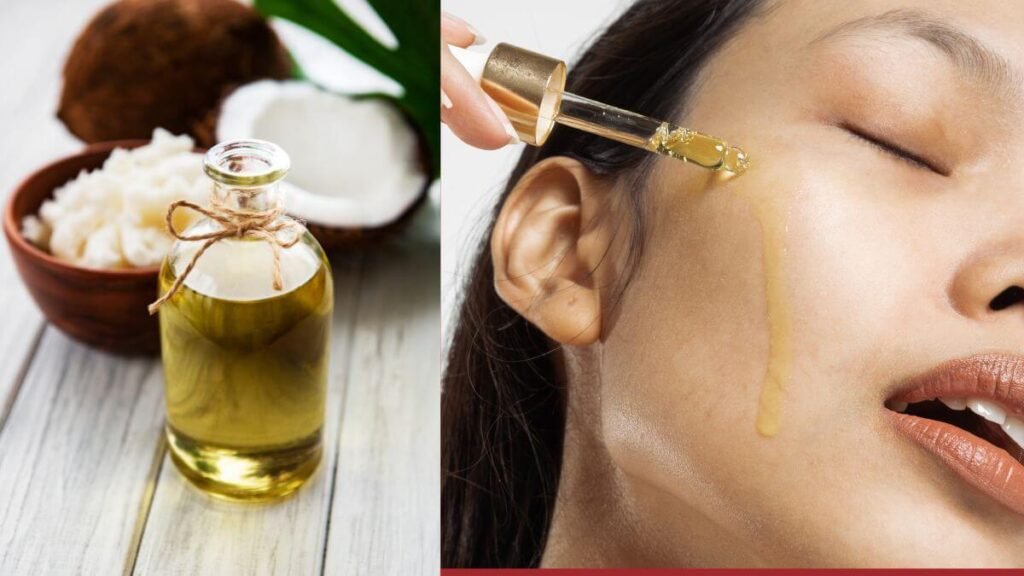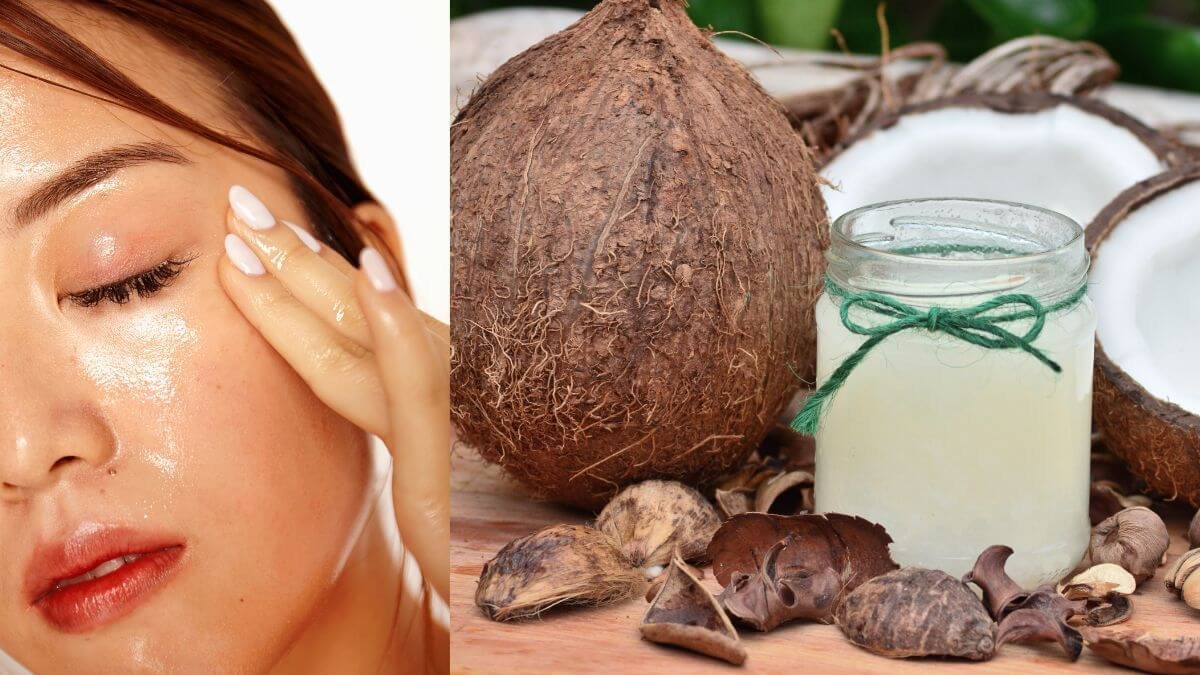Getting Started: Coconut Oil Pulling Dangers
If you’ve spent any time exploring natural health remedies, you’ve likely encountered coconut oil pulling. It’s been marketed as a natural way to enhance oral hygiene, brighten your smile, and improve overall health. As the popularity of this ancient Ayurvedic practice grows, many people swear by its benefits—claiming it helps with everything from detoxification to reducing inflammation in the body. However, while the positive outcomes are often highlighted, it’s important to address the other side of the coin: the potential coconut oil pulling dangers.
Discover our natural products store: SALE SUPRA
Discover the power of MAGNESIUM BREAKTHROUGH & TRUVARIN
In this article, I will guide you through the risks of coconut oil pulling, providing insights on what could go wrong, and how to practice it safely. With my personal perspective and practical advice, I’ll help you determine whether this health trend is right for you. Keep reading if you’re ready to discover the full story behind this ancient practice—and the dangers you may not have been warned about.
What are the risks of coconut oil pulling?

While coconut oil pulling offers benefits like improved oral health, it also carries potential risks such as jaw discomfort, aspiration (inhalation of oil), digestive issues, and irritation for those with certain medical conditions.
Understanding Coconut Oil Pulling: What It Is and Why It’s So Popular
Coconut oil pulling is a centuries-old practice rooted in Ayurvedic medicine. The process involves swishing a tablespoon of coconut oil in your mouth for about 15-20 minutes before spitting it out. The idea is that the oil will “pull” bacteria and toxins from the mouth, leading to healthier gums, cleaner teeth, and fresher breath.
The main draw of coconut oil for this practice lies in its natural antibacterial properties. Coconut oil contains lauric acid, a compound that can help fight bacteria in the mouth, especially the kinds that contribute to plaque, gum disease, and cavities. This is why many people choose coconut oil over other oils for pulling—it’s not only effective but also tastes better.
However, as with any health trend, it’s essential to approach it with caution. The benefits are often exaggerated, and the risks are not always clear to the general public. In the next section, we’ll delve into the coconut oil pulling dangers that can occur when this practice is done incorrectly or too often.
Thinking about trying coconut oil pulling? Start slowly and use high-quality oil to experience its benefits safely. Learn more about safe practices in this guide.
Coconut Oil Pulling Dangers

The Hidden Dangers of Coconut Oil Pulling
Though coconut oil pulling seems simple and beneficial, there are several potential risks that come with the practice. These dangers might surprise you and include a range of physical discomforts and health concerns. Let’s look at the most common issues people encounter when practicing coconut oil pulling.
1. Jaw Soreness and Fatigue: Coconut Oil Pulling Dangers
One of the most frequently reported issues associated with coconut oil pulling is jaw soreness. When you swish oil in your mouth for extended periods (15-20 minutes), your jaw muscles are engaged for a prolonged time. This can lead to jaw fatigue, soreness, and even tension in the neck and face. For individuals who aren’t used to holding anything in their mouth for long periods, this can be especially uncomfortable.
If you’ve ever tried holding something like a piece of gum in your mouth for a long time, you may have noticed the strain. Now imagine doing that for 20 minutes with a thick substance like coconut oil. It’s easy to see how this could cause discomfort.
2. Risk of Aspiration and Respiratory Issues: Coconut Oil Pulling Dangers
One of the more dangerous risks of coconut oil pulling is aspiration. Aspiration occurs when you accidentally inhale something into your lungs—whether it’s food, liquid, or in this case, coconut oil. If coconut oil is inhaled, it can lead to serious respiratory complications, such as aspiration pneumonia.
The risk is particularly high when you’re distracted or not mindful of how you’re swishing the oil in your mouth. Aspiration can happen if you accidentally swallow a little oil, or worse, if the oil gets inhaled while swishing. For those new to the practice or individuals with difficulty swishing fluid, the risk is more pronounced.
3. Digestive Upset from Ingesting Coconut Oil: Coconut Oil Pulling Dangers
Another common problem is digestive discomfort. While coconut oil can have beneficial effects on digestion when consumed in moderation, excessive consumption during oil pulling can lead to an upset stomach. This is especially true if too much of the oil is swallowed by accident, as the oil contains high amounts of fat. Overconsumption of fat can trigger nausea, diarrhea, or even stomach cramps in some people.
Additionally, if you’re not used to oil pulling, your body may struggle to tolerate the change. This can result in digestive discomfort, making the practice less enjoyable and potentially harmful.
4. Exacerbating Pre-existing Conditions: Coconut Oil Pulling Dangers
Certain medical conditions could make coconut oil pulling more problematic. For instance, individuals who have dry mouth conditions, which reduce saliva production, may find that oil pulling exacerbates their symptoms. The oil can also worsen conditions related to mucosal membranes or oral health, causing irritation in people with allergies to coconut oil or sensitivity to oils in general.
Additionally, those with certain oral health conditions, such as sores or ulcers, may experience further irritation and discomfort when using coconut oil for pulling.
5. The Possibility of Toxic Build-Up: Coconut Oil Pulling Dangers
If coconut oil pulling is done incorrectly, it can lead to a build-up of toxins in the mouth instead of drawing them out. The technique involves swishing the oil for 15-20 minutes to “pull” toxins from the mouth. However, if the oil is not properly expelled after the process, there is a risk of reintroducing the toxins back into the body. This could potentially negate the health benefits and lead to further complications, such as increased bacterial growth in the mouth or an upset stomach.
6. Not a Replacement for Regular Oral Hygiene: Coconut Oil Pulling Dangers
One of the most common misconceptions is that coconut oil pulling can replace regular oral hygiene practices like brushing and flossing. While oil pulling may offer supplementary benefits, it should not replace daily brushing and flossing. Without the proper brushing and flossing, plaque and bacteria will continue to build up, leading to cavities, gum disease, and other oral health issues.

Minimizing the Risks: How to Safely Practice Coconut Oil Pulling
Despite the coconut oil pulling dangers, there are ways to minimize the risks and still enjoy the potential benefits of this ancient practice. Here are some strategies for doing it safely:
1. Start Slow and Gradual
If you’re new to oil pulling, it’s best to ease into it. Begin with shorter durations (5-10 minutes) rather than the full 15-20 minutes to avoid jaw fatigue. Gradually work your way up as your body gets accustomed to the process.
2. Be Mindful of Technique
Always be conscious of your technique when swishing the oil in your mouth. Avoid swallowing any oil, as it contains bacteria and toxins. When you finish the process, be sure to spit the oil into a trash can rather than the sink to avoid clogging your pipes with oil.
3. Use High-Quality Coconut Oil
It’s essential to use organic, unrefined coconut oil to ensure you’re getting the purest form of the oil. The quality of the coconut oil will affect its effectiveness and your overall experience. Always choose cold-pressed, virgin coconut oil to maximize benefits and minimize additives.
4. Don’t Overdo It
Oil pulling doesn’t need to be a daily practice to be effective. It’s best to limit the practice to 2-3 times per week to prevent jaw fatigue, digestive issues, or irritation. Consistency is important, but moderation is key.

The Final Takeaway
Coconut oil pulling can be an effective practice when used correctly, but it’s essential to understand and recognize the coconut oil pulling dangers. Whether it’s jaw soreness, aspiration risks, digestive discomfort, or irritation, these dangers should not be taken lightly. By following best practices, such as starting slowly, using high-quality oil, and maintaining proper oral hygiene, you can enjoy the benefits without putting your health at risk. Coconut Oil Pulling Dangers
If you’re considering adding coconut oil pulling to your routine, take the time to listen to your body and approach the practice safely. Remember that oil pulling is a supplementary practice—regular brushing and flossing should remain your primary method of oral care.Coconut Oil Pulling Dangers
FAQ – Frequently Asked Questions
Is coconut oil pulling safe for everyone?
Coconut oil pulling is generally safe for most people, but individuals with allergies to coconut or certain oral health conditions should avoid it. Always consult a dentist if you’re unsure. Coconut Oil Pulling Dangers
Can coconut oil pulling whiten my teeth?
Many users report a slight whitening effect after consistent coconut oil pulling due to its ability to remove surface stains and bacteria from the mouth. Coconut Oil Pulling Dangers
How often should I practice coconut oil pulling?
It’s recommended to practice coconut oil pulling 2-3 times a week. Daily use may lead to jaw fatigue and digestive issues. Coconut Oil Pulling Dangers
What happens if I swallow the oil during oil pulling?
Swallowing coconut oil during oil pulling can reintroduce bacteria and toxins into your system. Always spit it out after the process. Coconut Oil Pulling Dangers
Can coconut oil pulling replace regular brushing?
No, coconut oil pulling should not replace brushing and flossing. It’s a supplementary oral health practice, not a substitute.
Can coconut oil cause digestive problems?
Swallowing too much coconut oil during oil pulling can lead to digestive discomfort, including nausea and diarrhea. Always spit out the oil to avoid this.

I’m an economist with 15 years of experience in strategic planning and a lifelong passion for wellness and natural living. As a self-learner, I created Herbalife Balance to share insights on healthy eating, mindful habits, and an active lifestyle. Tennis enthusiast and nature lover, I believe in balance as a path to well-being. Through this blog, I help others live healthier, more conscious lives.







